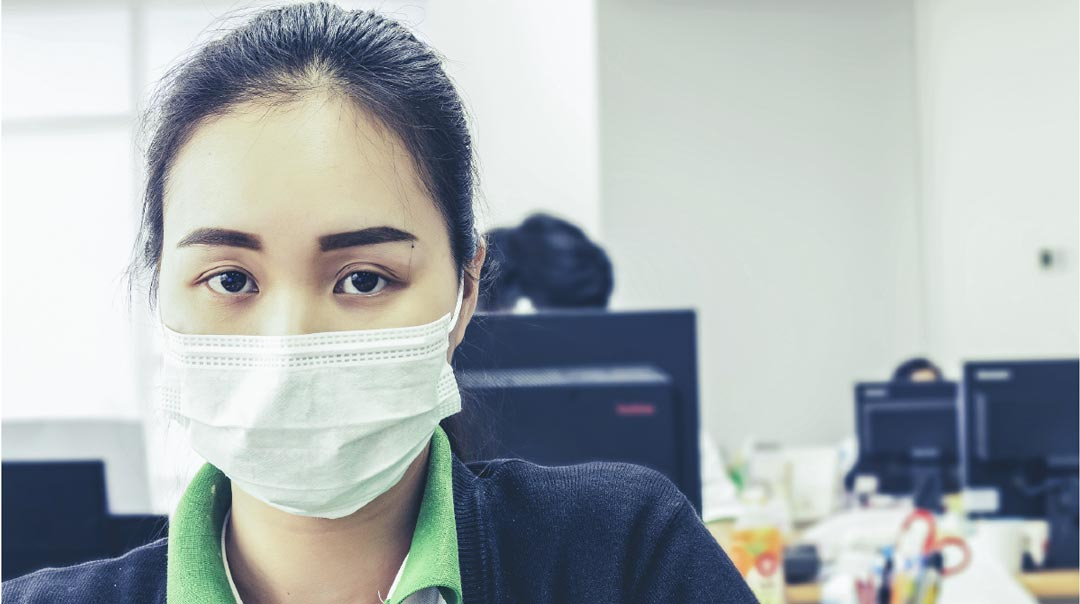HOW TO STAY SAFE FROM COVID-19 AND OTHER ILLNESSES AT WORK
JANUARY 31, 2020

UPDATED AS OF MARCH 12, 2020
The number of COVID-19 cases in the Philippines continues to increase both globally and in the Philippines, causing people to worry about to handle the outbreak at work. While not all employees have the option to work from home because of COVID-19, there are some steps that employers and employees can take to properly handle the current situation and prepare if it gets worse.
Here are some tips to stay safe in the workplace, how employers can prepare, and a few useful resources regarding the COVID-19.
Practice good personal hygiene and take care of your health
The best way to stay safe against any viruses or bacteria is to practice good personal hygiene and take care of your health
- Wash your hands often. The Centers for Disease Control and Prevention recommends washing for at least 20 seconds
- Don’t touch your eyes, nose, and mouth with unwashed hands
- If soap or water isn’t available, use alcohol or hand-sanitizers with at least 60% alcohol content
- Cover your cough or sneeze with tissue then throw tissue in the trash
- If you don’t have tissue in hand, cough or sneeze on your flexed elbows
- Get sufficient rest, try to avoid stress, drink lots of water, and load up on vitamins
Be cautious during your daily commute
...especially if you use crowded vehicles like the MRT/LRT or busses. If you can, try to avoid these crowded modes of transportation in the meantime.
But in reality, avoiding a crowded commute option is difficult, since most of our commute options are super crowded. If you don’t have other options for your daily commute to work, wear a face mask and try to face away from people. Don’t touch your face after touching handrails or door handles and be sure to wash your hands as soon as you get to the office.
Avoid close contact during meetings
This includes shaking hands. People are more likely understanding now when shaking hands since we have a confirmed case in the country. If you can politely decline a handshake, do so. But if you can’t, just remember not to touch your face until you can wash your hands or sanitize with alcohol.
Stay home when you feel sick
Apart from the fact that you need sufficient rest when you’re sick, staying home helps prevent further spreading the virus at work. Take a sick leave or if you have the option, ask your manager if you can work from home.
But if you really must report to work, wear a face mask. Below is how to properly wear the common surgical masks:
Although there is a lot of debate as to how effective face masks really are, it may help reduce spread of any viruses or bacteria in the workplace. Just remember that most masks are usually good for one time use only and need to be replaced regularly.
Maintain proper cleanliness in the office
Don’t just depend on your maintenance to clean. Clean after yourself too!
- Clean and disinfect frequently touched surfaces
- Have windows opened at least on the weekends to let air circulate. If you can, maintain good ventilation throughout the week
- Avoid sharing or using communal items such as coffee mugs or utensils
- Ensure that you have sufficient supplies of appropriate masks, alcohol, wipes, gloves, paper towels, thermometers, disinfectants, etc.
Employer’s responsibilities to their employees
Following the news of the first confirmed 2019-nCoV case in the Philippines, Senator Joel Villanueva appealed to the Department of Labor and Employment (DOLE) on Thursday to issue labor advisories reminding employers to comply with occupational safety and health standards (OSHS), according to an article from the Manila Bulletin.
According to Villanueva, who chairs the Senate committee on labor, employment, and human resources development, the “OSHS Law states this principal clearly and unequivocally.” He also encouraged the private sector to consider and adopt telecommuting as a work arrangement for employees whose tasks can be done remotely or from home.
While we wait for further news and updates from DOLE, the best thing to do is to ensure that our workplaces are clean and consider allowing employees to work at home when possible.
Global law firm Mayer Brown suggests that employers can start creating a detailed plan for coping with the situation if it gets worse. The plan should indicate how to deal with preparations to prevent an outbreak, what happens during the outbreak, and the steps to be taken after. Both health and safety issues as well as the continuity of business should be covered.
Mayer Brown enumerates what the response plan should cover
Before an outbreak:
- Set preventative measures
- Disinfect the workplace regularly
- Maintain good indoor ventilation
- Ensure everyone knows about response plans
- Ensure supplies (such as alcohol, masks, soap, paper towels, etc.) are sufficient
During an outbreak:
- Seek advice from relevant authorities (DOH, DOLE, CDC, etc.) on what steps need to be taken such as quarantine requirements
- Where employees will work (if the office is still safe or if home options are safer)
- At what stage will the workplace close and who decides this
- How to deal with infections of colleagues
After an outbreak:
- Ways to ensure that employees have fully recovered before they are allowed back into the workplace
- Rehabilitation for sick employees
- Opening communication channels to maintain good employee relations
You can find more answers to frequently asked questions related to the 2019-nCoV on the Mayer Brown website here. Even without the current outbreak, it’s always good for companies and businesses to have similar plans should anything happen in the future.
Know your rights
The OSHS Law, or Republic Act No. 11058, requires employers to ensure that workers are safe from risks and hazards in the workplace. It also states that an employee can refuse unsafe work, if determined by DOLE that an imminent danger exists in the workplace.
You can find the complete Implementing Rules and Regulations of the R.A. 11058 here.
The Republic Act No. 11165, or the Telecommuting Law, institutionalizes telecommuting as a work arrangement and harmonizes its principles with the Labor Code. It’s a good idea to talk to your employer about your work from home options especially in the case that risks associated to the 2019-nCoV increase.
Useful Resources:
Centers for Disease Control and Prevention 2019 Novel Coronavirus
Department of Health Updates on Wuhan Coronavirus (2019-nCoV)
Mayer Brown Novel Coronavirus and Employer Obligations
OSHS Law (Republic Act No. 11058)
World Health Organization Novel Coronavirus (2019-nCoV) advice for the public
2019-nCoV Global Cases (by Johns Hopkins CSSE)
JANUARY 31, 2020


